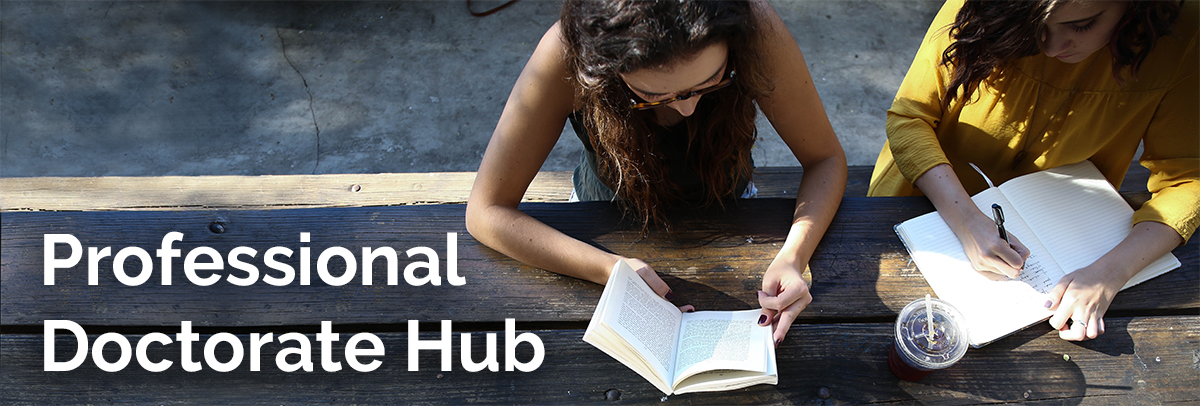The comments from other EdD students might give you insight into how they approached these areas. As you read the sections make a note of any actions and add them to your Researching Professional Development Plan. You can then discuss your action plan with your supervisor and revisit it at the end of the EdD year.
Increased confidence
What others said:
I think I can be capable of doing this. When I first started it I was not sure that I could and I am pretty clear that the structure of the way that the OU does this actually moves you almost inevitably towards being successful at it, and that has been quite a surprise so, yes, I feel as though I can do it and I didn’t feel as though I could do it when I started.
[Since I got my doctorate] I think I am much more secure … professionally I can stand there in my stride and stay stronger in my shoes.
I think the combination of the research skills and the approach to any kind of literature or situation … has given me a great deal of confidence in myself, not arrogance though, but confidence. If I don’t understand something I am perfectly happy to say, ‘I don’t understand that’, whereas before perhaps I thought ‘I can’t ask that because they might think I am stupid.’
It is amazing how such an achievement can also give you so much humility and how you can reflect about yourself and about others in a much more balanced way.
Points for you to consider:
- Have your studies so far changed how confident you feel?
- How might you use any increase in your confidence in other contexts?
Developing a research mindset
What others said:
I would say start with a blank sheet. … Everything I did was part of [my existing] thinking and it has taken me a while to just stand back from my experience and my own interpretations of experience to look at the academic conception and take a more detached view … I have to admit that I found it difficult to accept that things might not be as I imagined them to be.
I went through the phase of thinking that everything I read from anybody who was good enough to get published must be correct, so how could I possibly question whether or not that was the case in my setting or whether or not it was appropriate for my setting. I then went through a phase of having acknowledged that, yes, I could question some of the things based on what I found … but I was then a little bit too subjective, so then I had to go back a step. I think I went from black to white to possibly now in the grey area. Hopefully now more in the grey area.
Probably I hold people to higher standards as a result of it. I think I am less willing to accept ... I hear a lot, ‘Of course research shows this’ and I think it is fair to say that in the past I would have gone, ‘Oh right, that is interesting to know there is research to show that and now probably I am more likely to say, ‘I am happy to kind of suspend belief on that until I have seen the research and I feel that, [if] it does support it, is it one piece of research or are there multiple sources which confirm or has it just been one person’s bias?’ I think that is a significant change for me.
Points for you to consider:
- To what extent is your thinking moving from seeing things as black and white to being more in the grey area?
- Do you problematise, challenge the status quo, and look for opportunities for research?
- How has your approach to research undertaken by other people changed?
Developing a critical mindset
What others said:
What I have discovered is that I [now] don’t think of school policy as being right or wrong, I just see it as, 'it is what it is' and this tends to reflect on how I see things outside school as well now. It is what it is and my view is that I resolve an issue using all the information I have rather than assume one single approach is right or wrong.
My supervisor said that I used to describe rather than criticise and it took time for me to understand the difference. Rather than read text books, which described, I read articles and OU sources which helped me to extend my knowledge. Part of this was a realisation that a number of researchers have different points of view, and that studies which appeared identical might have different outcomes for different reasons. It was only through extensive reading that I began to develop the skills for myself.
I have always been a critical thinker but the EdD helped me to leapfrog, to jump to a whole different level because now I can be a critical thinker on the basis of theory, research etc. I feel I have the skills now to navigate literature, criticise it, comment on it, use it, apply it in a way that I had never been able to do before.
I hope I am less likely to react quickly and instinctively, and instead step back and try to think things through more objectively. I try to think of both positive and negative reasons for things rather than immediately judge one way or the other.
I suppose I don’t take anything on face value and if somebody says something I want to know the evidence.
Points for you to consider:
- Have you noticed any changes in how you respond to others?
- Where do you think you are on the describe–critique continuum? What could help you make further progress in the next year?
- How might your developing critical-thinking skills help you in other contexts?
How the EdD can be life-changing
What others said:
I suppose it has changed me because if I think about the other projects I am involved in I probably wouldn’t really have had the confidence to say, ‘Yes I will do those’ without it … there is a bit where I think I can talk to someone from [a leading Research School] on the same level and I don’t feel overawed.
[Now I have my doctorate] I think I am much more independent in how I go about things. I feel much more confident about being able to make suggestions like going to a meeting and saying ‘I think this would be a good idea.’
[The qualification] gave me a bridge to go to where I wanted to go … It was really getting that piece of paper so I could get to where I wanted to be.
Points for you to consider:
- To what extent has studying for the EdD affected how you think about yourself?
- Could any differences in how you think about yourself have an impact on how you go about doing other things?
- Have you thought of any ways the EdD might be life-changing for you?
This section has been about ‘developing your identity’. Before moving on, have a final look at the actions you have added to your Researching Professional Development Plan as a result of working through this section. Will your planned actions help you move forward over the coming year? Will they help you develop the ways you think? Are there any other actions that you feel might help you?
Return to the Researching Professional Development Framework.

This piece of content is part of the 'Professional Doctorate Hub', a collection of academic-led info, from articles and infographics to animations. Click on the banner above or CLICK HERE to view all materials.




Rate and Review
Rate this article
Review this article
Log into OpenLearn to leave reviews and join in the conversation.
Article reviews